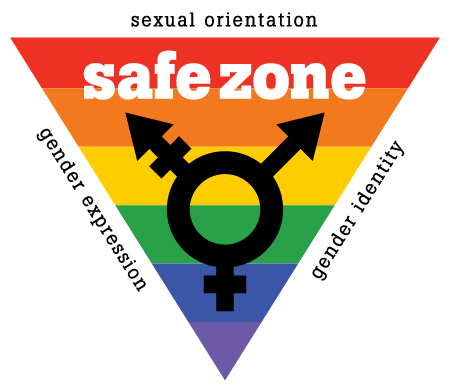Title IX Coordinator Information
- NOTICE OF NONDISCRIMINATION
The Imperial Valley College is committed to a safe and equitable learning environment for all students and employees. It does not discriminate on the basis of sex or gender in its educational programs and employment. Any incident, including sex discrimination or harassment, but not limited to, sexual assault including rape, dating violence, domestic violence or stalking committed on district property, or at a district sponsored event or activity, should be reported to the Title IX Coordinator immediately.
TITLE IX TEAM
Dr. Lennor M. Johnson, Title IX Coordinator
Vice President of Student Services
This email address is being protected from spambots. You need JavaScript enabled to view it.
(760) 355-6472
Location: Bldg. 100
Clint Dougherty, Title IX Deputy Coordinator
Chief of Human Resources
This email address is being protected from spambots. You need JavaScript enabled to view it.
(760) 355-6207
Location: Bldg. 2400
Vacant, Title IX Deputy Coordinator
Dean of Student Affairs, Enrollment Services and Campus Safety
(760) 355-6457
Location: Bldg. 1000
Vikki Carr, Title IX Deputy Coordinator
Director of Admissions & Records
This email address is being protected from spambots. You need JavaScript enabled to view it.
(760) 355-6244
Location: Bldg. 10
WHAT IS TITLE IX?
"The U.S. Department of Education's Office for Civil Rights (OCR) enforces, among other statutes, Title IX of the Education Amendments of 1972. Title IX protects people from discrimination based on sex in education programs or activities that receive Federal financial assistance. Title IX states that:
No person in the United States shall, on the basis of sex, be excluded from participation in, be denied the benefits of, or be subjected to discrimination under any education program or activity receiving Federal financial assistance." U.S. Department of Education – Office of Civil Rights
Examples of the types of conduct that could violate Title IX include, but are not limited to:
- Pressure for sexual activity
- Dating or domestic violence
- Sexual innuendos and comments
- Sexually explicit questions
- Requests for sexual favors
- Unwelcome touching, hugging, stroking, squeezing
- Spreading rumors about person's sexuality
- Sexual ridicule
- Displaying or sending sexually suggestive electronic content, including but not limited to emails, text messages, etc.
- Pervasive displays of pictures, calendars, cartoons, or other materials with sexually explicit or graphic content
- Stalking a person
- Attempted or actual sexual violence
The Official Complaint Process for Title IX: AP 3435 The Discrimination and Harassment Complaints and Investigations.
 LGBT SAFE CAMPUS
LGBT SAFE CAMPUS
The office for Civil Rights (OCR) in the U.S. Department of Education requires institutions to protect all students, including LGBT (Lesbian, Gay, Bisexual, Transgender) students under Title IX. Imperial Valley College facilitates and fosters an inclusive, affirming, and celebratory environment for students, faculty, and staff, of all sexual and gender orientation, identities, and expressions.
FILING A TITLE IX COMPLAINT
Please contact the Title IX Deputy Coordinators to file a Title IX Complaint as follows: Staff and Faculty may contact Title IX Deputy Coordinator, Mr. Clint Dougherty, Chief of Human Resources at (760) 355-6207 (Bldg. 2400). Students may contact Title IX Deputy Coordinator, Victor Torres, Dean of Student Affairs and Enrollment Services at (760) 355-6457 (Bldg. 1000).
ACADEMIC ACOMMODATIONS FOR PREGNANT STUDENTS
Supporting the Academic Success of Pregnant and Parenting Students provides background information to secondary school administrators, teachers, counselors, parents, and students on school retention problems associated with pregnant and parenting students.
CONFIDENTIAL RESOURCES
If a student is seeking more personal confidential support, there are designated confidential resources at Imperial Valley College. Offices designated as "confidential" will not report any information to the Title IX Coordinator. These conversations are kept stricktly confidential and, except in rare, extreme circumstances (including imminent risk of harm to self or others) nothing will be shared without your permission.
List of confidential resources located on your campus:
Menthal Health Counseling Office
(760) 355-6310
Location: Room 1536
DISTRICT POLICIES
For District Policies and procedures pertaining to discrimination, harrassment, sexual assault, student rights, responsibilities and code of conduct, as well as student discipline, click on the links below:
-
Discrimination_and_Harassment_Investigations Policy (AP 3435 Discrimination and Harassment Investigation)
-
Official Complaint Policy for Title IX
-
-
Nondiscrimation Policy (AP 3410 Nondiscrimination)
-
Prohibition_of_Harassment Policy (AP 3430 Prohibition of Harrassment)
-
Sexual_and_Other_Assaults_on_Campus Policy Revised, Pending Approval (AP 3540 Sexual Assaults on Campus)
SEXUAL HARRASSMENT / ASSAULT PREVENTION AND AWARENESS
The sexual harrassment of students, including the crime of sexual violence, is a form of sex discrimination and interferes with students' right to receive an education free from discrimination and, in the case of sexual violence, is a crime.
Sexual violence, as that term is used in this section, refers to physical sexual acts perpetrated against a person's will or where a person is incapable of giving consent due to the victim's use of drugs or alcohol. An individual also may be unable to give consent due to an intellectual or other disability. A number of different acts fall into the category of sexual violence, including rape, sexual assault, sexual battery, and sexual coercion. All such acts of sexual violence are forms of sexual harassment covered under Title IX.
WHAT IS CONSENT?
Law defines consent as the affirmative, conscious, and voluntary agreement to engage in sexual activity. Affirmative consent must be ongoing throughout sexual activity and can be revoked at any time. Silence, the existence of a dating relationship or past sexual relations, is not by itself assumed to be an indicator of consent. The person must act freely and voluntarily and have knowledge of the nature of the act or transaction involved.
The following video helps explain what is consent:


